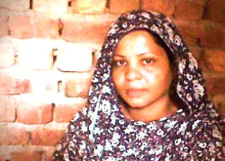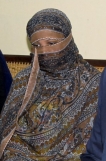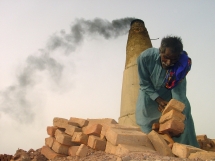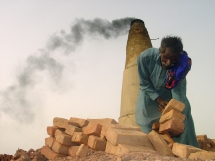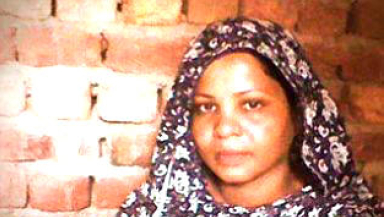
The Pakistani court that upheld Asia Bibi's death sentence last month has now called on the government to enact legislation that will make it more difficult to make blasphemy convictions.
The appeals judges at the Lahore High Court are asking for a law that requires courts to apply a test to accusers, to ensure that they meet "strict standards of Islamic piety", World Watch Monitor (WWM) reports.
A 1992 decision by the Pakistan Supreme Court ruled that courts must make an "elaborate enquiry into the piety, uprightness and integrity of the witness from the men of the same virtues" in blasphemy cases. It is a legal principle known as tazkiya al shuhood.
However, Bibi's accusers were not held to this standard during her original trial in 2010, and her lawyer – Naeem Shakir – therefore insists that her conviction is invalid.
Muhammad Anwaarul Haq and Syed Shahbaz Ali Rizvi, the judges who upheld her death sentence, now say they had no choice on the matter. They claim a weak defence, with no cross-examining of witnesses, left the prosecution to win "by default".
They also said there are no guidelines in place to help justices carry out tazkiyah al shuhood. Bibi's case may have had a different outcome if those guideline were available, they suggested.
"The bench has referred the case to the executive for consideration after identifying a legal glitch," Abid Saqi, former President of Lahore High Court Bar Association, said.
The government now faces the option of granting the High Court's request or otherwise. According to WWM, if they agree to the new legislation, "blasphemy defendants in Pakistan theoretically could place nearly insurmountable barriers in front of accusers."
Currently, Pakistan's blasphemy laws are blamed for much of the persecution against Christians and for increasing inter-religious tensions across the country.
The laws stipulate: "Whoever by words, either spoken or written, or by visible representation or by any imputation, innuendo, or insinuation, directly or indirectly, defiles the sacred name of the Holy Prophet Muhammad (peace be upon him) shall be punished with death, or imprisonment for life, and shall also be liable to fine".
Human rights groups say that the laws are frequently misused by extremists, and false charges are often brought against Christians in order to settle personal scores or to seize property or businesses.
Two weeks ago, a Christian couple near Lahore were been beaten and tortured by a mob for allegedly desecrating the Qur'an. Shama, 24, and her 26-year-old husband Shehzad were then burned to death in a brick kiln where they worked while the police stood by and watched.
The incident led to an outcry from the international community.
Supporter of the laws Hafiz Tahir Ashrafi, Chairman a body of Islamic clerics and scholars in Pakistam, told WWM that he is in favour of witnesses being subjected to a standards test. "In all cases, the evidence must meet the standards prescribed in the Islamic jurisprudence," he said.
However, Ghulam Mustafa Chaudhry, a lawyer who represented Bibi's accuser, said "there is no need to introduce any procedural amendment" to the current laws.
"If one really insists on the tazkiyah al shuhood standard of evidence then it shouldn't just apply on witnesses, the [judge] should also be appointed based on the Islamic standards not the way our current judges who are selected by political parties," he said.
"Even the entire society must operate on Islamic principles rather than just cherry picked laws that suit to the interests of certain people."
Found guilty of blasphemy in November 2010, Bibi has been on death row for almost four years. Despite the recent upholding of her sentence, it is thought likely that she will be released.
On Saturday, a small, peaceful vigil held outside the Pakistan Embassy in London was disturbed by two officers from the Pakistani High Commission, who ordered those gathered to leave.
"When I explained that we only wanted to honour the lives of extra-judicial killing victims Shahzad and Shama, the two officers seemed oblivious to whom we were referring. This hurt and caused great resentment. I was shocked that the officer knew nothing of one of the most brutal killings in the history of Pakistan," said Wilson Chowdhry, Chairman of the British Pakistani Christian Association.
"The two officers blocked our way until we started taking pictures, despite the obviously peaceful nature of our vigil. Their behaviour was both inappropriate and very intimidating."
The vigil was allowed to continue when Chowdhry explained that the vigil was not in breach of any UK laws.










